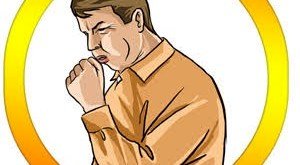EARLY SYMPTOMS OF LUNGS CANCER
Symptoms of lungs cancer

What are the early symptoms of lung cancer? We know that the survival rate from lung cancer is better the earlier it is caught. The 45 to 50% 5-year survival rate with stage 1 lung cancer drops to a saddening 1% with stage 4 disease, yet nearly half of people have progressed to this advanced stage at the time of diagnosis. What are the early symptoms of lung cancer that you should be on the lookout for?
Keep in mind that understanding the early symptoms of lung cancer is important for non-smokers as well as smokers. At present, 50% of people who develop lung cancer are former smokers, and 15% have never smoked. Lung cancer may also occur in young adults.
A Cough That Doesn’t Go Away
Many people dismiss or adapt to a chronic cough, attributing it to something else.
Perhaps it is allergies, a “leftover” cough following a cold, or dry air during the winter months. But a cough that lasts more than a few weeks can be a sign of something else. A chronic cough as an early symptom of lung cancer is even easier to miss if you have a condition that predisposes you to coughing, such as asthma, COPD, allergies, or gastroesophageal reflux. Coughing up blood (hemoptysis) is a common symptom of lung cancer, but can be fairly subtle and you may notice only a small amount of blood tinged phlegm when you cough. If you experience a persistent cough, check with your doctor, and ask for a second opinion if you don’t get a clear answer.
Causes of a Persistent Cough
Shortness of Breath With Activity
Another common early symptom of lung cancer is shortness of breath that you only notice with activity.
Try Audible with A Free Audiobook. Listen on Your iPhone or Android!
This can be overlooked and blamed on getting older, being out-of-shape, or perhaps due to those few extra pounds you’ve gained. If you notice that you are hesitant to take that hike, become winded with sexual activity, or blame the humidity for making it more difficult to breathe, make an appointment to talk to your doctor.
Causes of Shortness of Breath
Pain or Aching in Your Shoulder, Back, Chest, or Arm
Lung cancers may press on nerves, resulting in pain in your shoulder, chest, back, or an arm — even before they cause a cough or difficulty breathing. If you notice pain in one of these areas of the body that doesn’t seem to be related to an injury (or even if it is but persists), consult your physician. Up to 50% of people with lung cancer have some chest or shoulder pain at the time of diagnosis, especially pain that increases with coughing and brea
What Causes Lung Pain?
Repeated Infections Such as Bronchitis and Pneumonia
It’s not uncommon for someone to discover that they have lung cancer after being treated for repeated episodes of bronchitis or pneumonia. If a tumor is located near an airway, it can cause an obstruction that predisposes you to these infections. If you have had a few episodes of bronchitis or pneumonia, talk to your doctor. Repeated infections could be due to persistent smoking or a condition such as COPD, but they could also be an early symptom of lung cancer.
Any Abnormal Symptoms or a General Decline in Health
If you note any symptoms which are unusual for you, it is important to check with you doctor, especially if you have a history of smoking. Seemingly unrelated symptoms, such as knee pain, may be an early symptom of lung cancer. General symptoms, such as fatigue, decreased appetite, unexplained weight loss, or even depression should prompt you to seek a physicians guidance, too.
With lung cancer now the leading cause of cancer deaths for both men and women in the United States, it is important to be aware of any early symptoms. That said, 25% of people have no symptoms at the time of diagnosis, and lung cancer is discovered incidentally when a chest x-ray or CT scan is done for an unrelated reason.
Lung Cancer Screening
Unfortunately, we don’t have a good test for everyone to detect lung cancer in the earliest most curable stages. But it’s been found recently that for some people — those between the ages of 55 and 74 who have smoked at least 30 pack-years — CT screening can reduce the risk of lung cancer deaths by 20%. While screening is recommended for people who meet these criteria, there are others who may benefit from screening as well, for example people who have been exposed to radon in their homes or have a hereditary predisposition to lung cancer.














